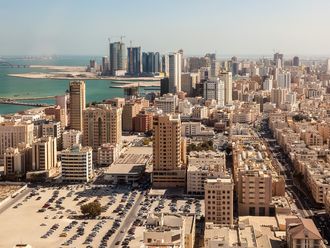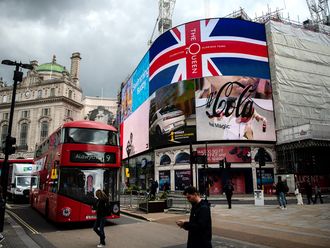Manama: Bahrain’s interior minister has condemned attacks on Bahrain’s expatriate communities, saying that the violence was unacceptable.
“Attacks on the expatriates and members of the foreign communities are unacceptable by any standard,” Shaikh Rashid Bin Abdullah Al Khalifa said.
“They are against all religions and conventions and clash with Islam’s values and tolerance and Bahrain’s traditions in dealing with various peoples,” he said, following reports that a Briton lost two fingers when he was attacked with a sword in a village as he lost his way driving home at around 2am on Friday. The Briton is still in hospital, but his condition was stable.
One day earlier, an Indian, 51, and two roommates were assaulted in Manama as they walked home from a restaurant.
“All components of the Bahraini society, including political associations, should express their views openly on such criminal acts,” Shaikh Rashid said.
On Saturday, a police car was gutted and a policeman was injured after people hurled Molotov cocktails, Public Security Chief Tarek Al Hassan said.
The car was deployed in an area where demonstrators blocked the highway and prevented vehicles from moving forward.
“The patrol policemen showed the highest level of restraint in dealing with the attackers and used only tear gas and rubber bullets to disperse the crowd,” Al Hassan told Bahrain Television.
Meanwhile, activists from the Sunni and Shiite sects made steps to bridge the widening gap now dividing the country by holding an open debate, the first of its kind since dramatic events unfolded in the country last year.
Even though emotions ran high during the heated discussions, nine speakers addressed the consequences of the tension on different segments of society and suggested possible solutions to reunite Bahrainis and look in the same direction together.
Organisers of the Bahrain Debate said that the event was “conceptualised by many people in Bahrain over the past few weeks.”
“The organisers are completely independent and funded the event personally. They are not affiliated with any societies, political parties, or government entities in Bahrain,” they said.
On a more official level, Professor M. Cherif Bassiouni, the former chairman of the Bahrain Independent Commission of Inquiry (BICI) commissioned by King Hamad Bin Eisa Al Khalifa to look into the events that hit Bahrain in February and March, said that several of the recommendations mentioned in the commission’s report have been implemented.
Bassiouni, on his first visit to Bahrain since he published a searing report on November 23, said that the implementation aimed to achieve national goals for Bahrain and that it required the conjugation of efforts by all segments of the Bahraini society who should place their national loyalty above all other loyalties.
King Hamad and the government accepted the report and a national commission was set up to oversee the implementation of the recommendations.
Members of the opposition joined the commission, but Al Wefaq, the largest opposition society, kept away despite repeated calls by its chairman, Ali Saleh Al Saleh, to all activists to join.
Bassiouni denied there was a procrastination of the implementation of all recommendations and said that some of the recommendations have been implemented while others were being put into practice. Some recommendations needed more time to be implemented, he said.
Bassiouni told Bahrain Television that his presence in Manama was in response to an invitation from King Hamad to assess the situation and denied reports that it was an extension of the BICI or that he was in Manama to carry out a new mission.
The Egyptian-born US expert said that Bahrain was well capable of moving ahead as a nation from the phase of crisis to the phase of achieving its objectives.












